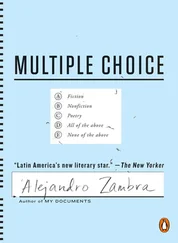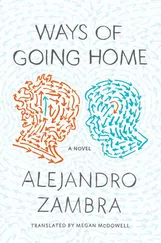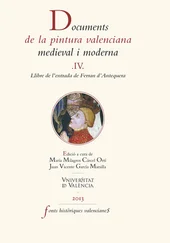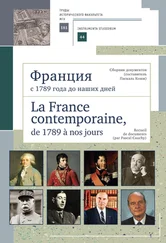“I remember,” I tell him. “I’m not that young.”
“You are very young,” he tells me.
We order more beers.
He goes on, “He kept saying it over and over. ‘Pass it back, Camilo, come on!’ And I was fed up. Out of pure spite I put the ball in the corner and scored a goal on my own team: ‘There’s your ball, motherfucker!’ I told him. Some people laughed, others yelled at me, your father just looked at me with hate. And then the other team scored, and we tied. If I hadn’t scored that own goal, we could have advanced further, maybe even won the championship.”
Just then my Dutch friend Luc arrives; he has some books to give me. I introduce him to Camilo. He sits with us for a few minutes, and in his extravagant Spanish he asks Camilo if he’s in exile. “Not anymore,” Camilo answers. “Or, yes. I don’t know anymore.” Luc wants me to leave with him, but I feel like I should stay. I tell him we’ll meet up later.
Big Camilo had told his son that he was never tortured, even though he was held prisoner for several months. “They beat the shit out of me,” he says to me now. “But I don’t want to talk about that. I’m alive. I got to leave, start over again.” We both fall silent, thinking about Camilo. I think of the record shop, the song by the Talking Heads; maybe I hum it a little. “I was born in a house with the television always on / Guess I grew up too fast / And I forgot my name.”
***
Now we are walking along Prinsengracht. It’s cold. Without meaning to, I start to count the bicycles that are going by on the street at breakneck speed. Fifty, sixty, a hundred. The silence seems definitive. I sense that we’re about to say good-bye. And, sure enough, just then he says, “Well, I’ll be going now.
“Tell Hernán I’m sorry,” he adds. I assure him that my father forgave him many years ago, that it’s not important. We ask a boy to take our picture with my phone. As we pose, I think about how tomorrow I’m going to call my father, and we’ll talk for a long time about Big Camilo, and we’ll also remember, as we do sometimes, the horrendous night in early ’94 when Auntie July called to tell us that Camilo had been hit by a car, and the wretched week when he almost pulled through but didn’t pull through.
I don’t know why I ask Big Camilo how he learned of his son’s death. “I found out eight days later,” he says. “July knew how to contact me, but she didn’t want to.” We’re standing, staring at the ground, on a corner by a lamp store. I’ve seen this several times in Amsterdam: shopwindows filled with lamps that are all turned on at night. I’m about to tell him this, to change the subject. Then he repeats, “Please tell Hernán I’m sorry about that goal.”
“I’ll tell him,” I reply. When we say good-bye, he hugs me and starts to cry. I think that the story can’t end like that, with Camilo Sr. crying for his dead son, his son who was practically a stranger to him. But that’s how it ends.
I worked nights as a phone operator, and it was one of the best jobs I’ve ever had. The money wasn’t good, but it wasn’t awful either, and although the place looked inhospitable — a cramped office on Guardia Vieja whose only window looked out on an immense gray wall — it was a pleasant place to work: not too cold in winter or too hot in summer. Well, maybe I got cold in summer and hot in winter, but that was because I never managed to figure out how the thermostat worked.
This was in 1998: the World Cup in France had ended, and, a little while later, after I’d been working at the job for a couple of months, they arrested Pinochet. My boss, who was Spanish, put a photo of Judge Garzón on a corner of his desk, and we placed flowers around it in thanks. Portillo was a good boss, a generous guy; I rarely saw him, sometimes only on the twenty-ninth, when I waited, with some stupendous circles under my eyes, to pick up my paycheck. What I remember most about him is his voice, so high-pitched, like a teenager’s — a common enough tone among Chileans but, for me, a disconcerting one to hear from a Spaniard. He would call me very early, at six or seven in the morning, so I could give him a report on what had happened the previous night, which was pretty much pointless, because nothing ever happened, or almost nothing: maybe some call or other from Rome or Paris, simple cases from people who weren’t really sick but who wanted to make the most of the medical insurance they had bought in Santiago. My job was to listen to them, take down their information, make sure the policy was valid, and connect them to my counterparts in Europe.
Portillo let me read or write, or even doze off, on the condition that I always answer the phone in good time. That’s why he called at six or seven — although, when he was out partying, he might call earlier, a little drunk. “The phone should never ring more than three times,” he would tell me if I took too long picking up. But he didn’t usually scold me; on the contrary, he was quite friendly. Sometimes he asked me what I was reading. I would say Paul Celan, or Emily Dickinson, or Emmanuel Bove, or Humberto Díaz Casanueva, and he always burst out laughing, as if he had just heard a very good and unexpected joke.
One night, around four in the morning, I received a call from someone whose voice sounded mock-serious, or disguised, and I thought it was my boss pretending to be someone else. “I’m calling from Paris,” said the voice. The man was calling direct, which increased my feeling that it was a prank of Portillo’s, because clients usually reversed the charges when they called. Portillo and I had a certain level of trust between us, so I told him not to fuck with me, that I was very busy reading. “I don’t understand, I’m calling from Paris,” the man responded. “Is this the number of the travel insurance?”
I apologized and asked him for his number so I could call him back. When we talked again I’d become the nicest phone operator on the planet, which wasn’t really necessary, because I’ve never been impolite, and because the man with the unrealistic voice was also unrealistically nice, which was not usual in that job: it was more common for clients to show their bad manners, their highhandedness, their habit of treating phone operators badly, and surely also laborers, cooks, salespeople, or any other of the many groups made up of their supposed inferiors.
Juan Emilio’s voice, on the other hand, suggested the possibility of a reasonable conversation, although I don’t know if reasonable is the word, because as I was taking down his information (fifty-five years old, home address in Lo Curro, no preexisting conditions) and checking his policy (his insurance had the best coverage available on the market), something in his voice made me think that, more than a doctor, he just needed someone to talk to, someone who would listen.
He told me he’d been in Europe for five months, most of that time in Paris, where his daughter — whom he called la Moño — was working on her doctorate and living with her husband — el Mati — and the kids. None of this was in response to my questions, but he was talking so enthusiastically that it was impossible for me to break in. He told me how the kids spoke French with charmingly correct accents, and he also threw in a few commonplace observations about Paris. By the time he started talking to me about the difficulties la Moño had been having lately meeting her academic obligations, about the complexity of the doctoral programs, and about what kind of sense parenthood made in a world like this one (“a world that sometimes seems so strange nowadays, so different,” he told me), I realized we’d been talking for almost forty minutes. I had to interrupt him and respectfully ask him to tell me why he was calling. He told me he was a little under the weather, and he’d had a fever. I typed up the fax and sent it to the office in Paris so they could coordinate the case, and then I started the long process of saying good-bye to Juan Emilio, who fell all over himself in apologies and politeness before finally accepting that the conversation had ended.
Читать дальше












